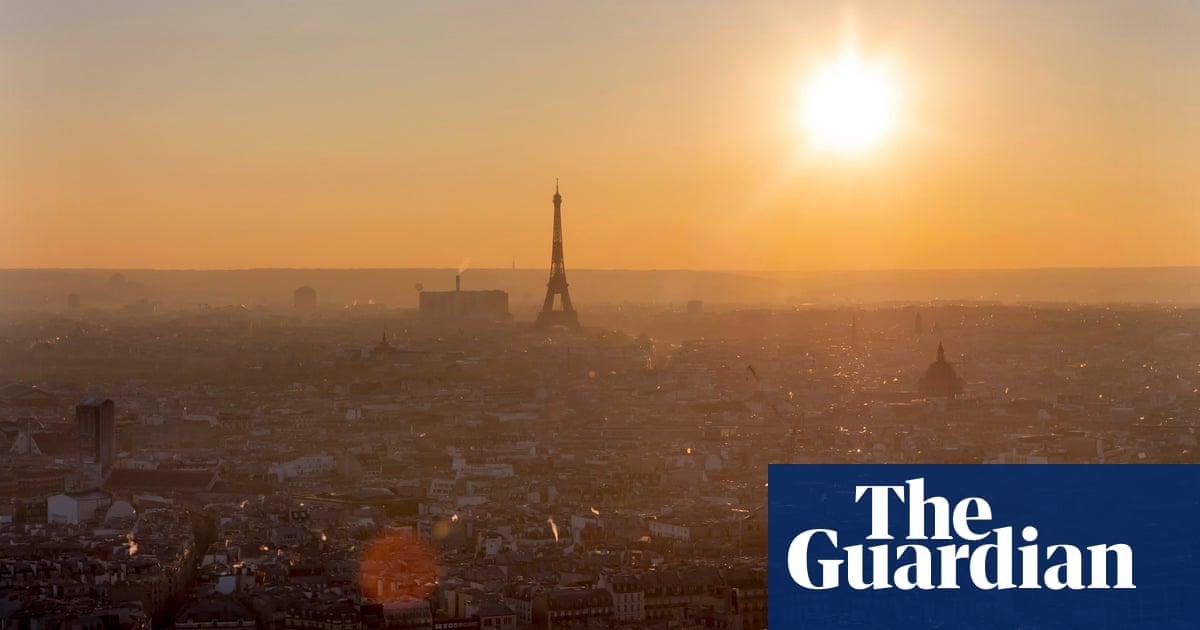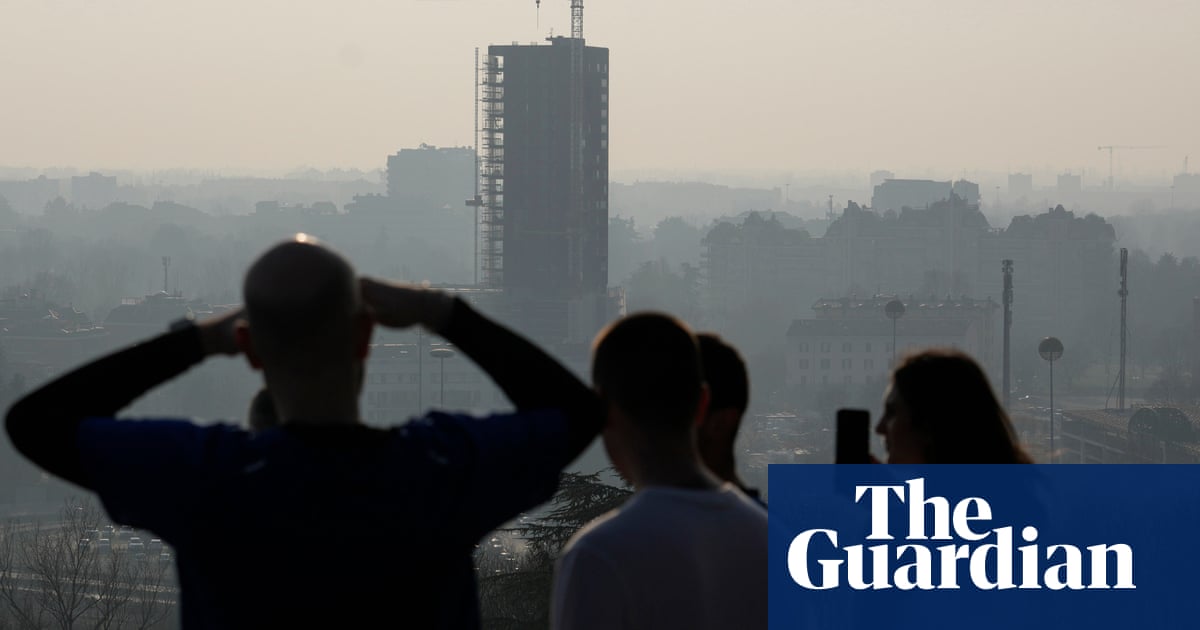
The EU has voted to clean its air by setting tough limits on pollutants in a move that experts say will save lives and money.
The European parliament agreed on Wednesday to limit the concentration of several dangerous substances to levels put forward by the World Health Organization (WHO). But after a fierce backlash from centre-right politicians, it decided to push back the date for meeting the WHO’s limits by five years.
“This is great news for all European citizens, especially the millions who live with lung conditions such as asthma and chronic obstructive pulmonary disease,” said Zorana Jovanovic Andersen, an epidemiologist at the University of Copenhagen and chair of the European Respiratory Society’s environment and health committee.
The vote “is an important step in the right direction toward clean air for all, even though the full alignment with the WHO was moved from 2030 to 2035,” she said.
Almost everyone in Europe’s urban areas breathes air containing enough fine particles to breach the WHO’s yearly guideline level of 5 µg/m3. The particles, known as PM2.5, are small enough to pass into the bloodstream, where they spread through the body and damage organs.
Scientists and doctors estimate that outdoor air pollution – including other harmful gases such as nitrogen dioxide, sulphur dioxide and ozone – kills 300,000 people in Europe each year.
“We are facing, with air pollution, a slow-motion pandemic,” said Javi López, a Spanish MEP with the centre-left S&D grouping who was in charge of the proposal. “The administration should fight against air pollution like we were fighting against the pandemic.”
The update to the air quality law, the details of which will now be finalised in negotiations with the European Council, was passed by 363 votes in favour to 226 votes against. The centre-right European People’s party (EPP) grouping, to which the European Commission president and European Green Deal champion, Ursula von der Leyen belongs, voted against the proposal.
“With this vote, there is a new risk of driving bans and even the closure of construction sites and industrial plants,” said Peter Liese, a German MEP and the EEP’s environmental spokesperson.
Most politicians supporting the law were acting irresponsibly, he said. “We will continue to fight against excessive measures. It is an important and correct goal to further improve air quality. But we should rely on technology and not on bans.”
The EPP, the largest grouping of elected officials in the European parliament, has broken with its historical support for the Green Deal in recent months. It nearly torpedoed a law to restore nature in July, and ran a public campaign that scientists criticised for spreading misinformation.
Opposition to the air quality law has had “the same intensity, but is more under the radar”, said Margherita Tolotto, the policy manager for air and noise at the environmental nonprofit European Environment Bureau. “I do think they are a little bit more ashamed of contradicting air quality objectives because it’s less sexy to go out in public and say: ‘Hey, look, I’m lobbying for you to continue breathing polluted air.’”
As well harming human health, dirty air holds back economies because governments have to spend more on healthcare and workers take more days off sick. The European Commission found in a report that full compliance with the WHO limits for PM2.5 by 2030 would boost the economy more than weaker rules would.
The researchers worked out the net benefit to society each year to be €90bn (£77bn) if PM2.5 levels were limited to 15 µg/m3, and €123bn if they were brought down to 5 µg/m3.
The proposal approved by the parliament calls for better monitoring of air pollution and information that is easier to access. It also includes clauses that give people greater rights to compensation if their governments do not comply with the limits.
Zachary Azdad, the vehicles policy officer at the nonprofit Transport & Environment, said the law was a step in the right direction, but that “delaying alignment with the WHO will cost lives because of years of avoidable air pollution”.
“Today’s vote will do little to accelerate the rollout of low and zero-emissions zones in Europe, throwing a lifeline to dirty diesel and petrol cars,” he said.
Air pollution was the fourth biggest risk factor for early death globally in 2019, with only blood pressure, smoking and diet playing a greater role.
“The other three you have control over,” said Barbara Hoffman, an environmental epidemiologist at the University of Düsseldorf. “If you have hypertension, you can take medication against it. You can stop smoking, or you can not start smoking, and you can have a healthy diet.
“You cannot determine yourself the air that you’re breathing.”











